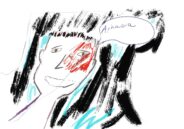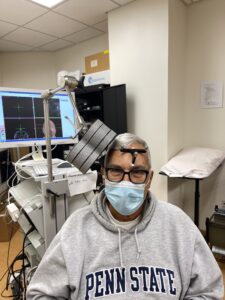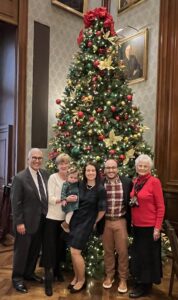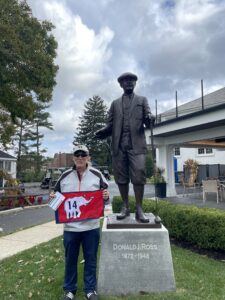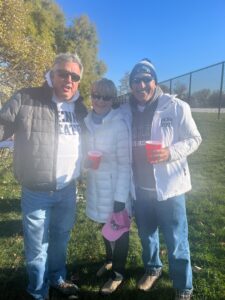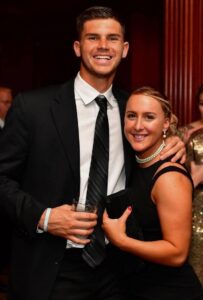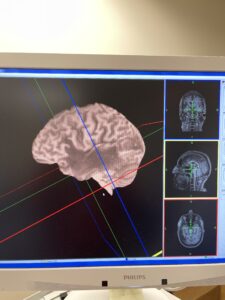Last week I participated in a study at the University of Pennsylvania. The study is “A Physic II, Randomized, Controlled Trial of Transcranial Magnetic Stimulation (TMS) and Constraint Induced Language Therapy to Treat Chronic Aphasia.” Like I can figure that out!
If you have Aphasia, you should look to see if it is of interesting to you. It may give information to you and others. Here is information on faqs: https://www.med.upenn.edu/lcns/faqs.html
I was invited to participate in this research study. I have Aphasia, and my language is a “disorder.” This study is for those with a stroke for more than six months, with Aphasia resulting in difficulty using words or understanding them. So far, so good.
The first part was to do the baseline language for three sessions. This part worried me the most. If my speech has gotten better, I may not get any help. My speech has gotten much better over the last year, but I do have problems. I was scared. There were a lot of tests. Some of this was no problem. Others, I struggled. I realized that this might be too difficult.
The first day, I wondered whether my ability to get better with Aphasia wouldn’t work, and perhaps it just isn’t worth it. I thought all day. I realized that participating in the therapy treatment would be a plus. Everything is difficult but giving up is not something I do.
The speech pathologist told me that my baseline was within the range for the test. I understand that my Aphasia is better, but I still have problems.
In early October, I had an MRI. Third time in 14 months. The issue with my brain on the left side resulted in the problems that happened after the stroke.
| My left-hand side with the dark area as my brain issues. | This is the right-side with no issues. |
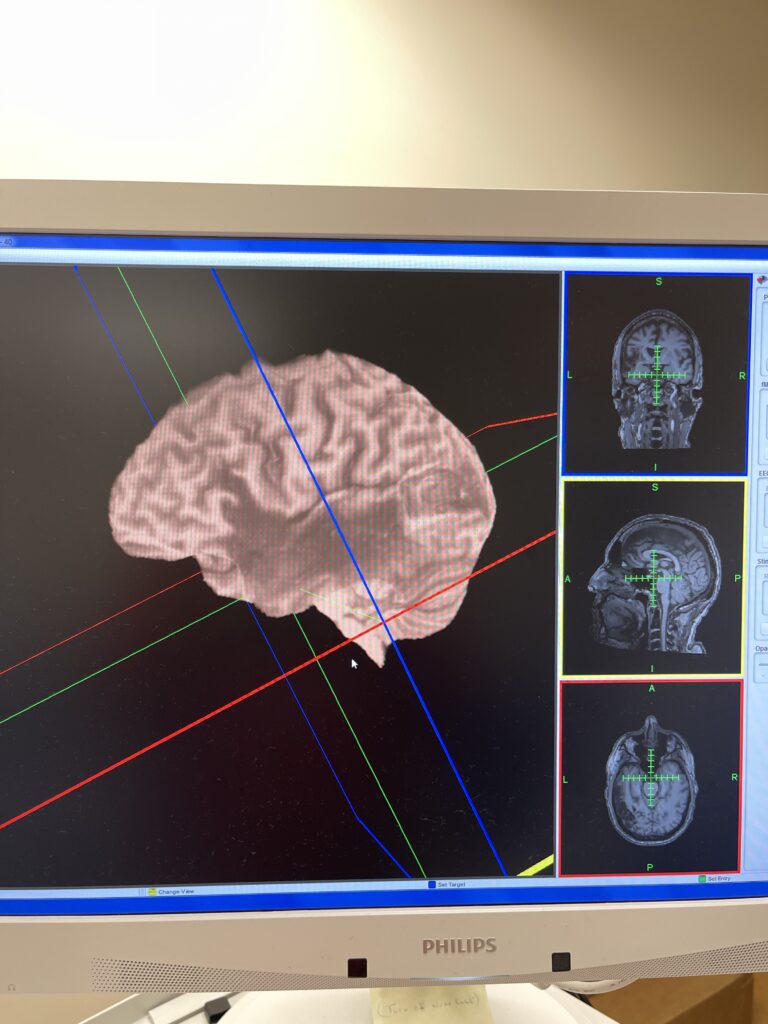 |
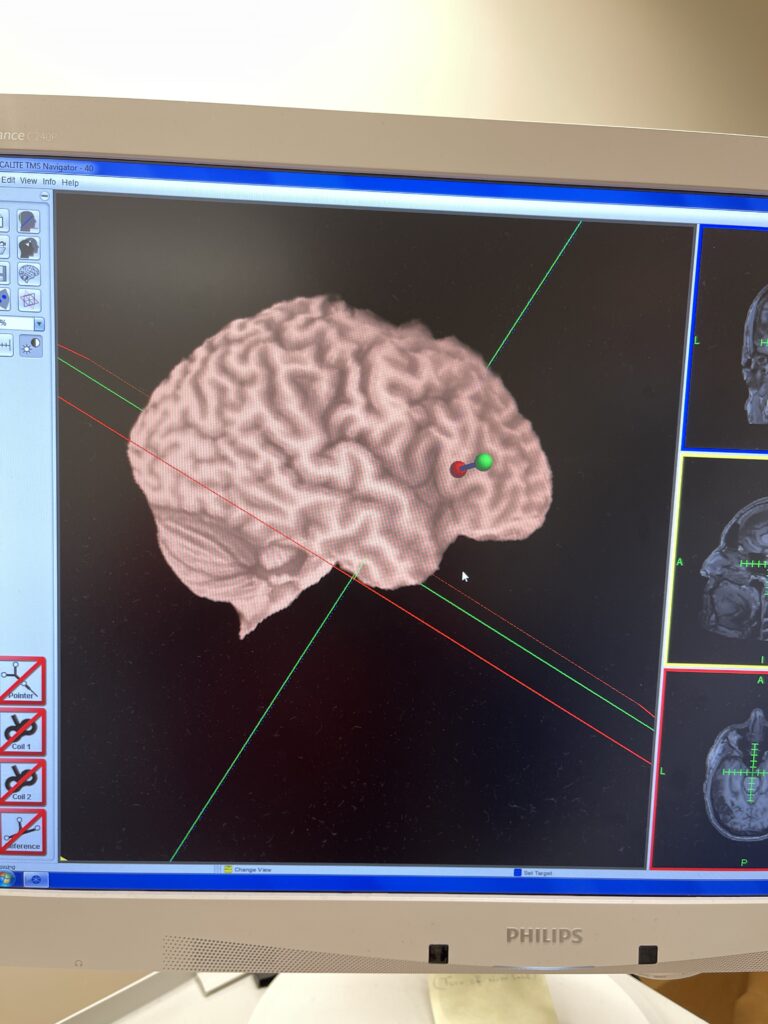 |
In late October, I started with the language test. They connected all of the TMS instruments and started. Because it is a “controlled study,” I won’t know whether or not mine will be a “placebo.” Regardless of whether or not I received the TMS, I will receive language therapy for two weeks.
The most annoying thing is the noise on the TMS. It sounds like 20 minutes of banging a hammer on my head. After a while, you get used to it, and the last ten days worked out ok.
If anyone with Aphasia and is worried about this, I understand. Having someone experimenting with my brain and my Aphasia worried me a lot. Everything was fine. No worries. No headaches. Nothing. It prepared me if my CEO ever asks to work on something on Compensation and Benefits in the future.
After each day, I met with Leslie Vnenchak, on language therapy. We started to look at pictures of nouns. My first goal was to remember the nouns for many words: electrician, soldier, mailman, etc.
With Aphasia, I knew what they were, but I could not always say the word. We spend a lot of time going over and over them again. The next day we did it again.
It was tedious, but after a while, I started to remember some of the words. Just when I thought I was doing great, Leslie began to ask for verbs too. Yikes. It started again, asking over and over again. I began to remember them too.
“The electrician is checking”;
“The soldier is shooting”;
“The mailman delivered.”
I know what it says. Sometimes I need the wrong word Leslie described, but my word will work even though I cannot remember the exact phrase. For example:
“The electrician is fixing”;
“The soldier is firing”;
“The mailman is sending”;
Then Leslie added the third noun. Now they want me to remember three words for a sentence which makes it difficult. Some days I have the words, sometimes I don’t. I see the words in my brain, but I can’t remember the language to say the word.
“The electrician is checking the outlet”;
“The soldier is shooting the machine guns”;
“The mailman delivered the letter.”
Over and over, we went. Now I redo this again three months and six months later.
Let’s see what I can remember then.
You can see the information at Penn Medicine. https://www.med.upenn.edu/lcns/
There was recently a CBS segment on treatment at Stanford on depression which seems to be a similar treatment as TMS. https://www.cbsnews.com/news/saint-treatment-for-depression/
